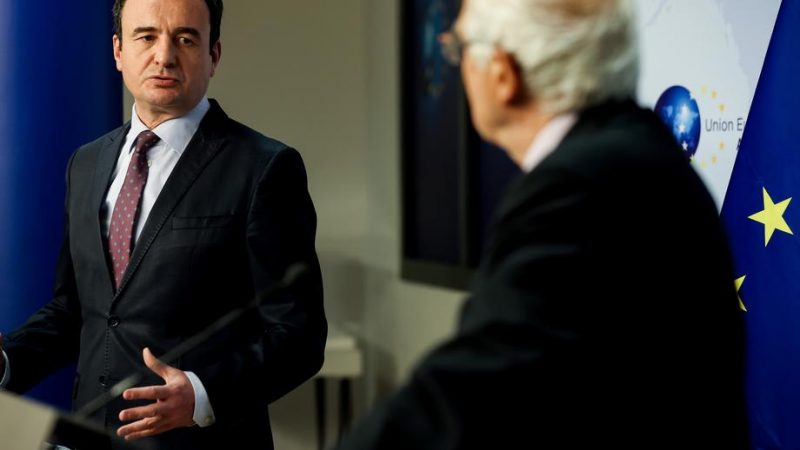The leaders of Serbia and Kosovo will meet the EU foreign policy chief in Brussels later this month, officials said Friday (5 August) , as the international community scrambles to soothe rising tensions.
European Union spokesman Peter Stano said President Aleksandar Vucic of Serbia and Kosovo’s Prime Minister Albin Kurti had accepted EU High Representative Josep Borrell’s invitation.
“I can confirm that after the High Representative, Josep Borrell, invited both parties to Brussels, Prime Minister Kurti and President Vucic have accepted his invitation. They will be welcomed in Brussels on 18 August by Borrell and EU Special Representative Miroslav Lajcak to discuss the way forward in the Pristina-Belgrade dialogue,” said Stano.
The EU special envoy for Kosovo, Miroslav Lajcak, will also participate in the discussions.
The European invitation comes after another period of rising tension in northern Kosovo between the territory’s ethnic Serb minority and the Kosovo authorities in Pristina.
Kosovo declared independence from Serbia in 2008, less than a decade after a bloody war that killed thousands of ethnic Albanians and displaced almost 1.5 million, and NATO intervention against Belgrade’s forces.
In recent weeks, Serbs living in Kosovo have reacted angrily to plans by the ethnic Albanian-led government to introduce new travel documents for visitors with Serbian IDs.
Kurti’s government also wants motorists with registration plates issued in Serbia to change them for those issued in Kosovo.
Both measures are reciprocal to those Belgrade has in place for Kosovo citizens, but protesters blocked roads in northern Kosovo.
There is still a 3,775-strong NATO peacekeeping force in Kosovo, which has warned it will intervene if order breaks down, and the US ambassador persuaded Pristina to put the new measures on hold.
Serbia is nominally a candidate for eventual EU membership, even if the application is making slow progress, but five of the 27 EU members do not yet recognise Kosovo’s statehood.
Serbs in northern Kosovo have long refused to acknowledge Pristina’s authority and have largely remained loyal to the government in Belgrade, which provides financial support to their community.
EU-led talks between Kosovo and Serbia, launched in 2011 to normalise ties between the former foes, have failed to hammer out a settlement.
Kosovo is recognised by about 100 states, including the United States, while Serbia and its allies China and Russia refuse to acknowledge its independence.
-Euractiv

